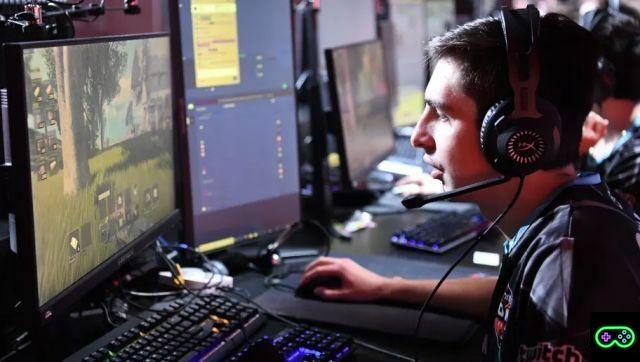A few months ago, I wrote an article that caused a lot of discussion in which I set out my theory: watching gameplay does not give the right to judge video games. This is true if you are a gamer without any kind of contractual relationship with anyone, and it is even more so if you are a reviewer.
However, another concept is linked to this concept which deserves a few words. On social media, I have had the opportunity to read comments from people - including perhaps those who give votes to the games by watching only a live stream - who claim thevideogame omniscience of the reviewer. In short, the cake and the drunk wife. But is it really so? Who writes for a magazine, and gets paid, must know, and have played, all the video games released in history?
The answer is no and now let's see why. The reasons can be summarized in four convenient paragraphs: personal data, timing, economic situation and personal tastes.

Registry issues
The reviewer is not an entity that transcends space and time, he is a human being who is born, grows up, unconsciously decides to become a videogame journalist and then, inevitably, dies. As in all fields, those with more experience know more than those with less and the latter can learn a lot from the former, yet cannot take control of their mentor's brain like a cordyceps; moreover, even those who can boast a lot of experience, it is not certain that he is the age of dates.
If the reviewer is 20 years old, he cannot be expected to know the games released on the Atari 7800. Sure, he can educate himself, he can inform himself thanks to that wonderful tool that is the Internet, but it's not that simple. As long as we talk about PS1, PS2, Nintendo 64, NES, Mega Drive, the thing is still feasible, even very long, but still feasible, but recovering titles for Colecovision e Magnavox Odyssey it seems to me an arduous operation, and let's face it, useless. If one can do it, better, chapeau, but he doesn't have to.
Specifically, if a reviewer has a large gap represented by a game or series and it can be filled easily, then they MUST do so as soon as possible, for their own personal culture and in order to have greater authority when it becomes necessary to talk about that / the game / series or similar titles. However, he is not forced to jump through hoops to be able to fit into his own videogame baggage a title, although important, really difficult to find in legal ways.
I, for example, had never played, until a few months ago, at Halo Saga, now however, thanks to the purchase of an Xbox Series S and the Gamepass, I have recovered all the games that make it up. I can't consider myself an expert, but from that moment on I was able to talk about it with full knowledge of the facts.
Read also: Videogames, players over 30 and difficulties: when time is not enough
Timing
The reviewer does not live on a planet where one day lasts three Earth years. Playing everything that comes out, even in a single year, is impossible for many, because the work itself takes away your time and energy (the job of videogame journalist it's not just playing, in fact, it's just the tip of the iceberg), articles don't write themselves, meetings aren't held with a chip implanted in the brain, the family wouldn't accept a refusal to ask to leave your room after two weeks you make yourself feel, the free time, which in times of lockdown is not lacking, can also be spent doing other activities.
And if the reviewer has no family, no boyfriend / girlfriend, doesn't give a damn about reading a book, he doesn't mean waste precious time throwing out the garbage does not mean that the 24 hours multiply, they always remain those. Even if you want to play everything, deny yourself sleep, you won't be able to do it because there is too much stuff, even when you think that the exits are tight. The players, the newspapers themselves, focus on big headlines believing, therefore, that there are no games in a given month: it is wrong. Between indies, minor titles and random Japanese stuff (visual novels, for example), too many games are released in a month for a single person.

Economic situation
The reviewer is not entitled to an unlimited credit card. Video games cost money, the reviewer he does not pay those he reviews, which in fact are sent for free to the editors via keys to be redeemed. For everything else, video game writers have to shell out the money.
Sure, there is the GamePass, there is Now, there is Stadia, there are free Plus games (subscriptions must still be paid), there are often many promotions to be exploited both on the various console stores and on Steam or Epic Games, but if the demand requires that the reviewer must play EVERYTHING, then subscriptions and discounts are not enough to avoid bankruptcy and a meal at Caritas.
Among other things, the reviewer, perhaps he has not yet understood, does not enjoy a contractual situation well framed in certain working standards that apply in other fields. Today, who writes about video games is in effect a unemployed who can tell others he has a job so as not to make a bad impression, because it is already a lot if he can get a payment with Withholding Tax.
In short, we try not to make the situation with the wallet of others.

Personal tastes
You might think that the reviewer likes everything, is good in all genres, loves every theme, that's not the case. The reviewer is also a gamer, has his own background, has his own interests, loves certain literary genres, is crazy about certain films, hates others, has his hobbies, and all this set of passions also determines which video games they like them more.
If to anyone who writes about video games do not like strategists, why should he take it? Mind you, I'm not saying that you shouldn't even try, I'm saying that if after trying the path of reconciliation with that particular genre, you can't like it, then it's right that you continue not to play with it.
An objection to be explained could be: "But if he doesn't like jrpg, how does he review them?". Well it's very simple, it DOES NOT review them! In an editorial office, when a video game key arrives, it is not entrusted to the first who passes by, many factors are taken into account, including the journalist's familiarity with that series, with that genre, his "curriculum", that is, what reviews he has already written and, therefore, whether that title is in line with his previous productions , his natural predisposition to be able to deal with certain types of interactive experiences ...
The reviewer must be competent, not an encyclopedia to browse at will.





![[The Bear's Lair] God of War: Betrayal and Greek mythology](/images/posts/17432d3b12ecfec44b0b855d20c7520f-0.jpg)




















